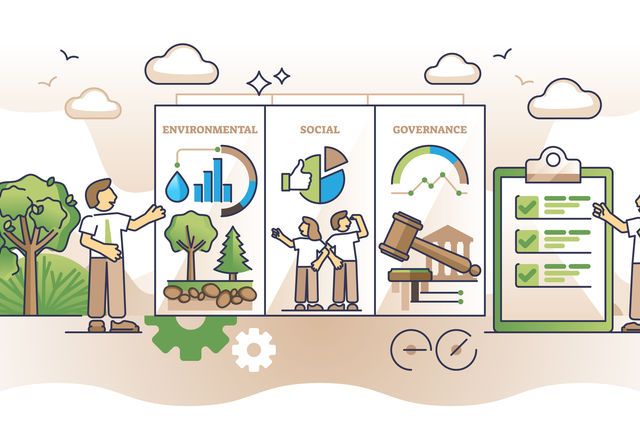How to incorporate the S in ESG reporting: materiality, metrics and creating momentum
15 experts shared their view
Guest contributor: Anke Winchenbach, PhD, Senior Lecturer at the School of Hospitality and Tourism Management, University of Surrey.
Environmental, social, and governance (ESG) criteria are increasingly guiding business strategy, operations, and reporting. The new European Sustainability Reporting Standards (ESRS) and related Corporate Sustainability Reporting Directive (CSRD)[1] apply a phased approach[2] which eventually requires all large and listed companies operating in the EU to disclose risks and opportunities related to environmental and social issues, and the impact their activities have on people and the planet.
While there has been considerable progress in assessing and reporting on environmental and governance components of ESG, social sustainability aspects have received considerably less attention, with reporting against social criteria remaining patchy and difficult to compare[3]. Social is also the part that seems to be influencing ESG investment the least, and yet, from an investment risk point of view, it's important, especially when considering the current challenges in retaining and recruiting staff (e.g. 61% of businesses are experiencing staff shortages in the UK alone, resulting in reduced trading hours[4]). Further, the hospitality industry frequently considers workers as their key assets, yet concerns over insecure, indecent, and undignified work, and human rights violations remain[5,6].
Given the changes in the sustainability regulatory landscape in the EU and beyond, and the context above, the following questions arise:
- Which social aspects should companies measure and report against, what metrics should be used?
- What are the main barriers assessing social sustainability and how can they be overcome?
References
[1] https://finance.ec.europa.eu/capital-markets-union-and-financial-markets/company-reporting-and-auditing/company-reporting/corporate-sustainability-reporting_en
[2] For details see page 63, article 5 section 2 a) and b) here: CELEX:32 022L2464" target="_blank">https://eur-lex.europa.eu/legal-content/EN/TXT/PDF/?uri=CELEX:32 022L2464 and https://ec.europa.eu/commission/presscorner/detail/en/qanda_23_4043
[3] Guix, M., Bonilla-Priego, M. J., & Font, X. (2018). The process of sustainability reporting in international hotel groups: An analysis of stakeholder inclusiveness, materiality and responsiveness. Journal of Sustainable Tourism, 26(7), 1063-1084.
[4] https://www.ukhospitality.org.uk/worker-shortage-fix-needed-if-hospitalitys-world-cup-boost-to-continue/#:~:text=Leading%20hospitality%20trade%20bodies%20have,and%20days%20as%20a%20result.
[5] Ladkin, A., Mooney, S., Solnet, D., Baum, T., Robinson, R., & Yan, H. (2023). A review of research into tourism work and employment: Launching the annals of tourism research curated collection on tourism work and employment. Annals of Tourism Research, 100, 103554.
[6]Winchenbach, A., Hanna, P., & Miller, G. (2019). Rethinking decent work: The value of dignity in tourism employment. Journal of Sustainable Tourism, 27(7), 1026-1043.
At the moment, there seems to be a high degree of demand from mission-critical entities (banks, investment funds, venture capitalists) putting pressure on those entities in need of funding (startups, scaleups, shareholding based corporations), hence the opportunity will be there, to translate such funding and banking demands into a truly intellectually sustainable platform, possibly enabling a deeper transition towards preferable futures. Learning from practice and transferring such learnings into standards by means of valorization, publication and dissemination will be key.
Related article by Marco Bevolo


